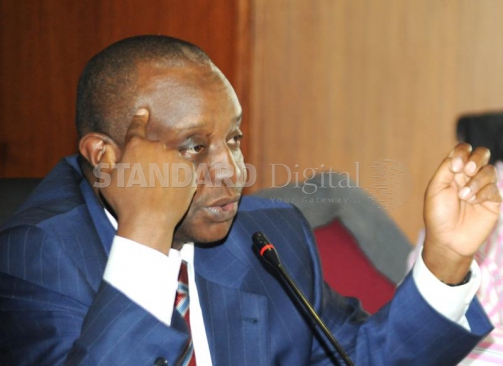×
The Standard e-Paper
Stay Informed, Even Offline

Kenyans are staring at heavy taxation in the next financial year as the National Treasury moved to increase budgetary allocation to fight insecurity. The exchequer will also have to borrow heavily from domestic and foreign money markets.
According to 2015/16 Budget estimates released on Thursday, the Treasury plans to raise spending by 25 per cent to Sh2.17 trillion in the financial year starting July, with the bulk going to energy, infrastructure and telecommunications.